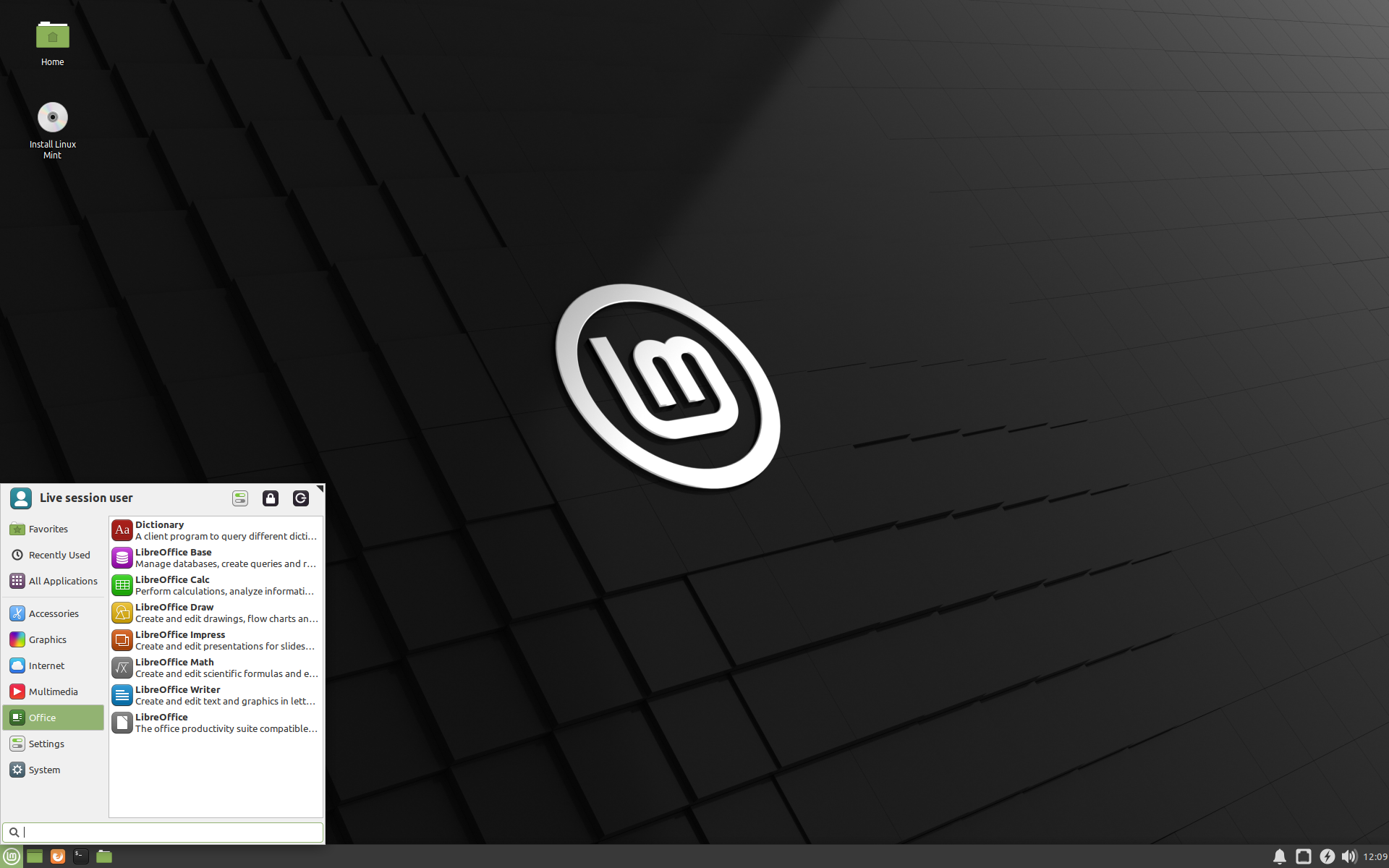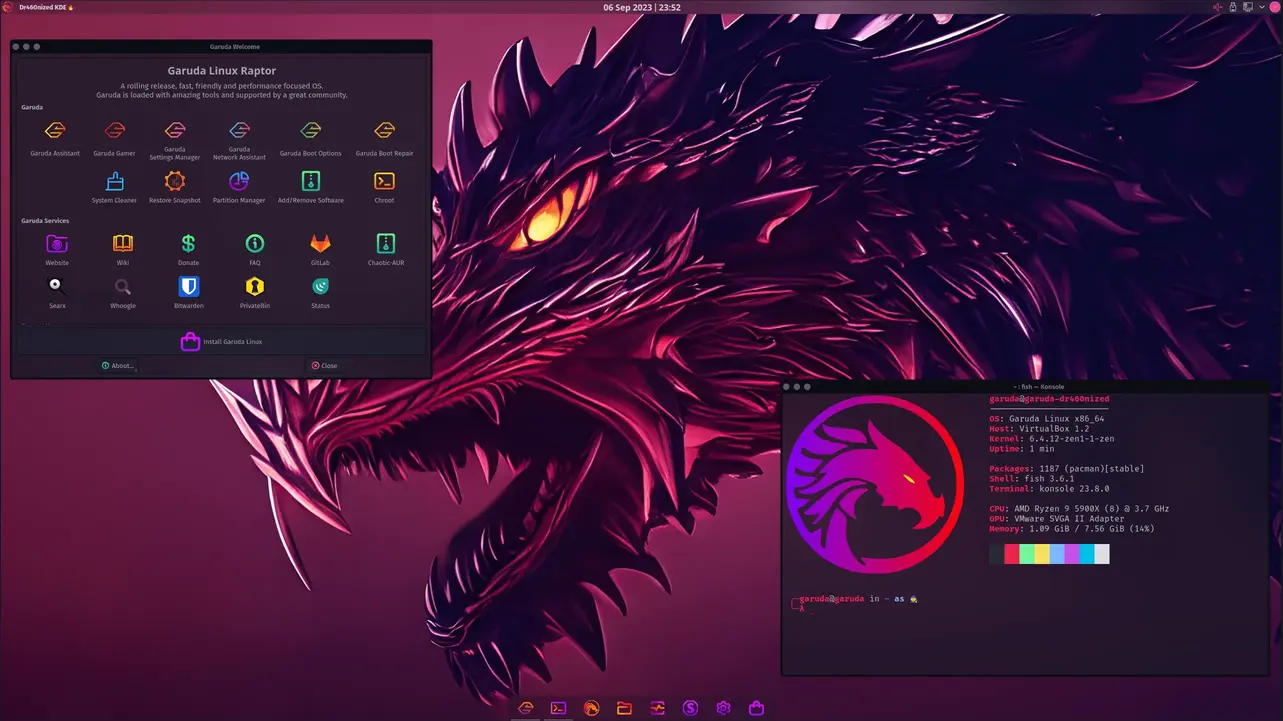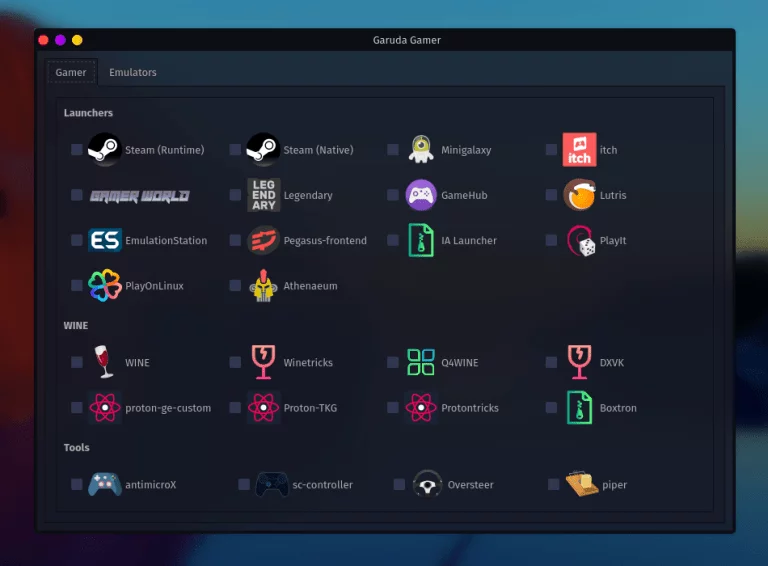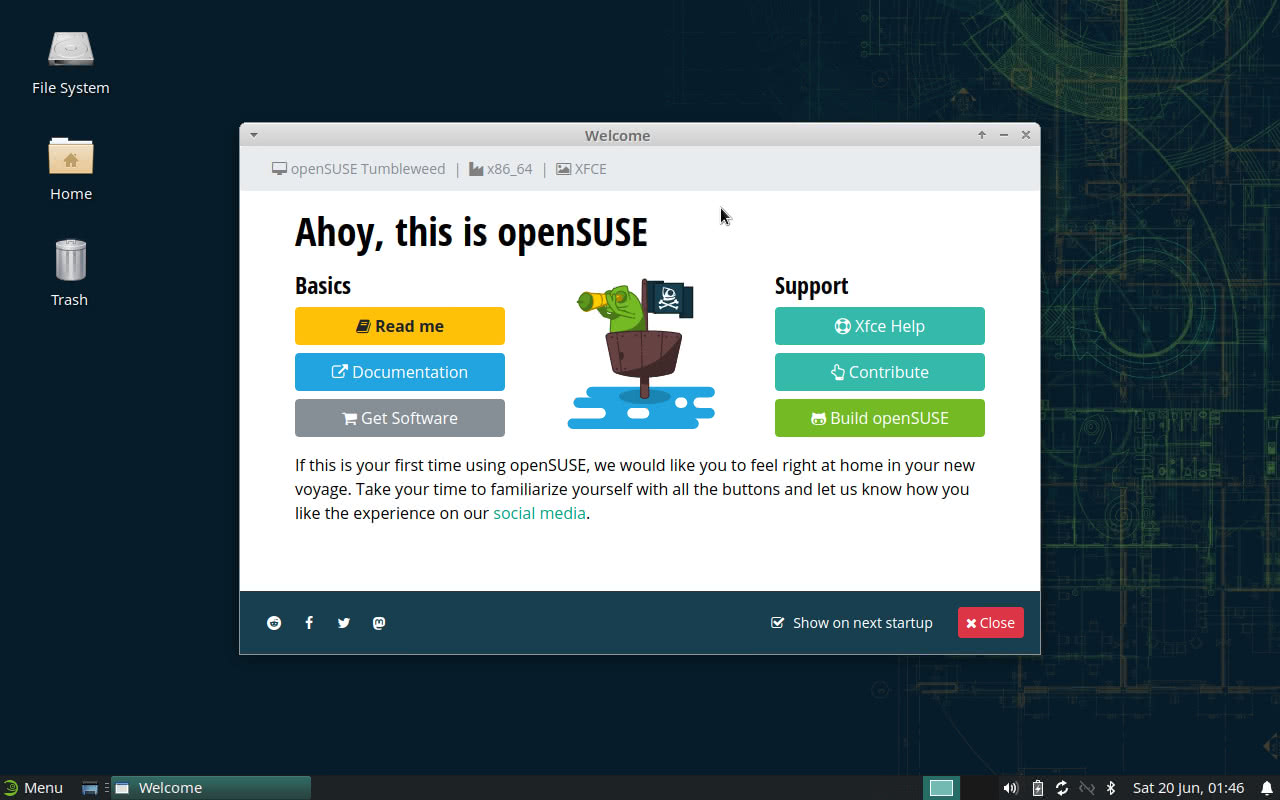- Log in to:
- Community
- DigitalOcean
- Sign up for:
- Community
- DigitalOcean

If you’re looking for the best Linux distros for your laptops, look no further. It has been a common myth that Linux-based distros are mainly suited to servers and high-end cloud devices, Linux is perfect to be run as your daily driver on your laptop. One can even go as far as saying that Linux distros are the better choice for laptops as they optimize hardware usage and can even run on older laptops!
Read 10 Reasons Why Linux Is Better Than Windows.
Best Linux Distros For Laptops
In this module, we will have a look at some distros which are best suited for laptops so that you can choose the best one for yourself.
1. Ubuntu - Best overall Linux distro for laptops

Ubuntu is one of the most versatile Linux distributions with an active community and long-term supports. It is a favorite among newbies and intermediate users, especially due to the large number of software utilities available. Ubuntu by default uses Unity as its desktop environment but is also available in different flavors like Lubuntu (which is based on LXDE/LXQT), Xubuntu(which uses the XFCE desktop environment), and Kubuntu(which features KDE Plasma).
The system requirements for running Ubuntu is:
- 2 GHz dual-core processor
- 4 GiB RAM (system memory)
- 25 GB of hard-drive space (or USB stick, memory card, or external drive but see LiveCD for an alternative approach)
The system requirements for running Xubuntu are:
- 1.5 GHz Dual Core processor
- At least 2 GB of memory. However, it can run on as low as 512 MB of RAM
- 8 GB of free space
The system requirements for running Lubuntu are:
- A Pentium II or Celeron system or Equivalent
- 128 MB of RAM. However it is recommended to have atleast 1 GB of RAM.
- 8 GB of free space is recommended
The system requirements for running Kubuntu are:
- 1 GHz processor
- 512 MB of system memory (RAM)
- 8 GB of free disk space
2. Pop!_OS - Best Linux distros for programmers and engineers

When we talk about Distros for Laptops, one cannot simply ignore Pop!_OS developed by System 76 for their Laptops and is based on Ubuntu. However, it is much more power-packed features and allows for some super cool features like:
- Auto Tiling
- Separate Workspaces
- Stacking Windows
- Much More
Pop!_OS is also one of the best distros for programmers and engineers. It comes pre-packed with a lot of tools to facilitate development and coding. It ships with GNOME Desktop Environment and has two built-in themes: Light and Dark. It available as an LTS Release!
The system requirements for PopOS! are:
- 64-bit x86 architecture CPUs
- 2 GB of RAM is required but 4 GB of RAM is recommended
- 20 GB of storage is recommended.
3. Linux Mint - Easiest Linux distro to transition from Windows

If you are someone who has recently switched over from Windows and are looking for some beginner-friendly distros, then Linux Mint might be the one for you. It is a fairly lightweight Linux distro that somewhat resembles Windows in its appearance. It also comes with a lot of feature-rich applications like multimedia support and timeshift. It comes in three major flavors:
- Cinnamon
- MATE
- XFCE
Linux Mint is based off on Ubuntu. One of the unique apps which Linux Mint features is Warpinator: a tool based on Giver that makes it easy to share files with other users across a local network. Another thing to look out for Linux Mint Debian Edition (LMDE) which is a version of Linux Mint based on Debian.
The system requirements for Linux Mint are:
- 512 MB of RAM is the minimum requirement whereas the recommended amount is at least 1 GB.
- A minimum of 5 GB disk space but it is recommended to have at least 20 GB of free space.
4. Elementary OS - Most beautiful Linux distro for Laptops

Elementary OS is probably one of the most beautiful Operating Systems out there, with the custom-developed Pantheon Desktop Environment strongly resembling Mac OS in look and feel which makes it ideal for people switching over from Mac.
It is based off on Ubuntu and is an extremely popular choice for laptops as it comes bundled with a lot of different drivers which are required by laptops, including some drivers required by older models.
It is a very lightweight distro that comes pre-packed with basic packages like a browser and an email client. However, you can fetch a wide variety of applications from its app store.
The system requirements for Elementary OS are:
- Intel i3 or equivalent dual-core 64-bit CPU
- 4GB of RAM
- 15GB of storage, preferably an SSD
5. Manjaro - Arch-based Linux distro for Laptops

Manjaro is an Arch Based Linux distribution and is one of the best ones suited to be your daily driver. One of the main reasons of it’s popularity is Manjaro Hardware Detection which detects your hardware types and installs the required drivers for you.
It also lets you enjoy the Arch environment without going through the horrors of Arch Installation. It is very stable as compared to Arch Linux which makes it very suitable as a Desktop driver.
Manjaro officially comes in the following flavors
- XFCE
- KDE Plasma
- GNOME
While community releases also support:
- Awesome
- Bspwm
- Budgie
- Cinnamon
- i3
- LXDE
- LXQT
- MATE
- Openbox
Though the system requirements vary vastly from flavor to flavor, the recommended ones are:
- 1 GHz or better CPU
- 1 GB of RAM
- 30 GB hard drive space
6. Garuda Linux - Coolest looking Linux distro for laptops

Garuda Linux is probably one of the coolest looking Linux distros out there and is specially crafted for desktop/laptop users. It ships with the Zen kernel which is one of the best kernels for Desktops/Laptops. It also uses BTRFS as the default file system and supports automatic snapshots out of the box using Timeshift. In spite of being based on Arch Linux, it has a lot of GUI support. For instance, you can install apps, change kernels, manage drivers, tweak GRUB settings, etc all via GUI options, unlike most other distros which use the CLI for the same.
Another very important feature of Garuda Linux is that it is optimized for gaming as well! You can download a wide variety of games and emulators from the Garuda Gamer GUI which makes the installation process very easy. Overall, Garuda provides a very feature-rich, eye-candy desktop, while still retaining the pros of Arch.

Garuda Linux comes in the following flavors:
- Garuda KDE Dr460nized (based on KDE Plasma)
- Garuda KDE Multimedia
- Garuda Xfce
- Garuda Linux GNOME
- Garuda LXQT-Kwin
- Garuda Cinnamon
- Garuda Mate
- Garuda Wayfire
- Garuda Qtile
- Garuda BSPWM
- Garuda i3WM
- Garuda Linux Recbox
- Garuda Linux Barebones
The system requirements for Gardua Linux are:
- 30 GB is the minimum storage space required whereas 40GB is recommended
- 4 GB of RAM is required but the optimal amount is 8 GB
- 64-bit System
- Video card with OpenGL 3.3 or better
7. OpenSUSE - Linux distros for IT professionals

If you are a power user, an IT professional, a sysadmin, or a coder, this is the Linux distro for your laptop! It requires minimum post-installation configuration and comes with a lot of specialized tools like OBS (Open Build Service), openQA, and Kiwi. In spite of it being designed primarily for people in tech, it can be configured for usage as a daily desktop driver as well, thanks to YaST, a very comprehensive system configuration and installation tool, which makes the distro a bit more accessible to users who don’t enjoy working with the terminal.
OpenSUSE comes pre-packed with a lot of drivers for newer as well as older laptops. Unlike other distros on this list it comes only in the two following flavors:
- Tumbleweed
- Leap
The system requirements for OpenSUSE are:
- Pentium 4 1.6 GHz or AMD equivalent CPU
- 1GB of RAM (2GB recommended)
- 3GB of storage (5GB recommended)
Conclusion
These were some of the best suited Linux Distros for Laptops. There are still many more like ZorinOS, MX Linux, RebornOS and much more and we highly encourage you to try them out before settling for the distro of your choice.
Thanks for learning with the DigitalOcean Community. Check out our offerings for compute, storage, networking, and managed databases.
Still looking for an answer?
Even if Garuda Linux is so popular, then why it’s not in the list of linux distro of wikipedia?
- Vatsal
- Table of contents
- Best Linux Distros For Laptops
- Conclusion
Deploy on DigitalOcean
Click below to sign up for DigitalOcean's virtual machines, Databases, and AIML products.
Become a contributor for community
Get paid to write technical tutorials and select a tech-focused charity to receive a matching donation.
DigitalOcean Documentation
Full documentation for every DigitalOcean product.
Resources for startups and SMBs
The Wave has everything you need to know about building a business, from raising funding to marketing your product.
Get our newsletter
Stay up to date by signing up for DigitalOcean’s Infrastructure as a Newsletter.
New accounts only. By submitting your email you agree to our Privacy Policy
The developer cloud
Scale up as you grow — whether you're running one virtual machine or ten thousand.
Get started for free
Sign up and get $200 in credit for your first 60 days with DigitalOcean.*
*This promotional offer applies to new accounts only.
